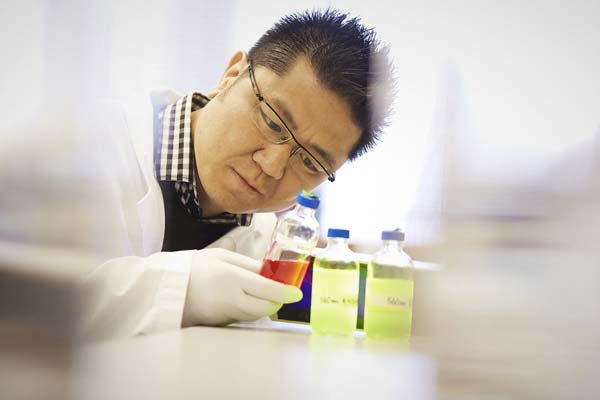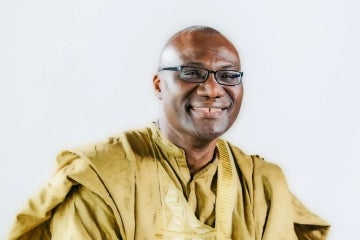
NSERC awards almost $50 million to U of T researchers
Published: June 23, 2015
University of Toronto researchers have received almost $50 million in funding from the Natural Sciences and Engineering Research Council (NSERC) to study topics ranging from sustainable aviation fuel to mapped circuitries of the human brain.
U of T faculty and students received 214 discovery grants, 18 discovery accelerator supplements and 91 scholarships and fellowships from the federal funding agency – worth $48,719,930 in total.
“We are grateful to the Government of Canada and NSERC for this vital investment,” said Professor Vivek Goel, vice president (research) at U of T.
“University of Toronto faculty and students are engaged in ground-breaking research and innovation and this funding will allow them to continue their important work.”
Goel said he was especially pleased with the scholarship and fellowship funding.
“These awards will allow a new generation of researchers to develop the skills and knowledge they will need to meet tomorrow’s challenges.”
NSERC awarded over $340 million to more than 3,800 researchers across the country. The awards are the results of the 2015 competition for NSERC’s Discovery Grants, Discovery Accelerator Supplements, Discovery Development Grants, Alexander Graham Bell Canada Graduate Scholarships, Postgraduate Scholarships, Postdoctoral Fellowships and Research Tools and Instruments Grants.
Discovery grants are based on recommendations from peer review committees consisting of experts in each of 12 science and engineering fields and typically last for five years. Discovery accelerator supplements provide additional resources to accelerate progress and maximize the impact of outstanding research programs.
The largest discovery grants – $535,000 over five years – went to Warren Chan of the Institute of Biomaterials & Biomedical Engineering (pictured above) and Lewis Kay of Molecular Genetics. Kay’s grant is for his research on “Solution NMR studies of the Hsp104/ClpB Chaperone” while Chan’s grant is for “a rationale chemical strategy for designing multi-functional nano systems.”
 Iva Zovkic (pictured left), a psychology professor at University of Toronto Mississauga, received both a discovery grant and a discovery accelerator supplement to support her neuroscience research in learning and memory.
Iva Zovkic (pictured left), a psychology professor at University of Toronto Mississauga, received both a discovery grant and a discovery accelerator supplement to support her neuroscience research in learning and memory.
“This is just a wonderful step in getting my research established and allowing me to utilize innovative approaches to answer long-standing questions in gene regulation and neural plasticity,” said Zovkic, adding that financial support is critical to conducting her laboratory experiments.
“A key pillar of our government’s updated Science, Technology and Innovation Strategy is ensuring Canada develops, attracts and retains the world’s most talented researchers,” said minister of state for science and technology Ed Holder.
“Today’s investment ensures Canada has a broad base of talented men and women whose research continues to push the boundaries of knowledge, creates jobs and opportunities while improving the quality of life of Canadians.”
For the full list of recipients, please see NSERC’s website.
(This story includes material supplied by Carla DeMarco, a writer with University of Toronto Mississauga.)



